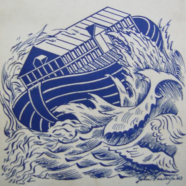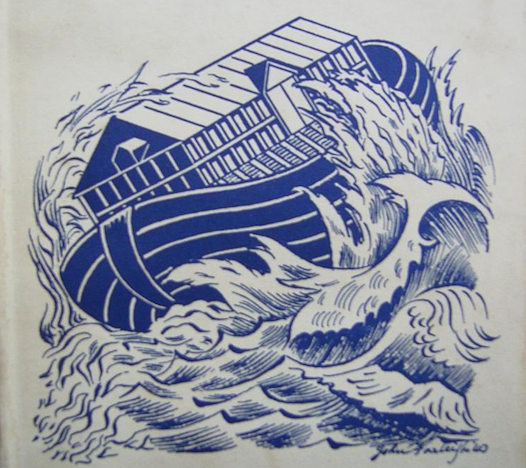Fantastika Keynote
In July 2018, I was delighted to be invited to deliver one of the keynote addresses at After Fantastika: An Interdisciplinary Conference, the fifth annual conference organised by Fantastika Journal. The theme of the 2018 conference was what comes ‘after’, with papers invited that explored the impact of temporal narratives within Fantastika and related genres.
My keynote was titled "All Aboard for Ararat: The Deliquescence of Clock-Time in Contemporary Apocalyptic Flood Fictions" and considered the productive timescales being suggested by a growing sub-genre of twenty-first-century apocalyptic literature: flood fictions. Flood fictions depict a range of apocalyptic floods, from tsunamis and deluges that are local, partial and/or provisional to planetary accounts of rising sea levels, global disaster, and pluvial shifts in meteorology. The significance of islands in these narratives suggests a formal relationship with the locus classicus of the Renaissance utopia; a genre grounded in pelagic crossings to the New World as European imperialism shaped new capitalist frontiers. The Renaissance island-utopia thus offered an exotic site for social experimentation that played on the idea of bodies, embodiment and sovereignty: rethinking the body politic by relocating society from the mainland to exotic island locations.
The reimagining of embodiment becomes an urgent question for our own times of rising sea levels and climate change; something that contemporary flood fictions interrogate through their depiction of transformed topography and the new island communities it creates. I examined the different temporal orders that such islands make possible in several twenty-first-century flood fictions to think through the ambiguities of apocalyptic end times. Novels such as Will Self’s The Book of Dave (2006), Stephen Baxter’s Flood (2008), Megan Hunter’s The End We Start From (2017) and Kim Stanley Robinson’s New York: 2140 (2017) reveal a number of different temporal orders functioning outside of, alongside, and beyond the regulatory clock-time of industrial modernity. From the phylogenetic or ancestral time of memories of ancient floods to the watery intersubjectivity of gestational duration represented by pregnancy and new motherhood; from the diachronic timescale of planetary evolution in a new Hydrocene era of sea level rises to the archipelagic consciousness suggested by new island constellations, and the return of pre-industrial modes of agricultural subsistence: these texts depict islands as sites of utopian change that hint at different social worlds with their own temporalities beyond capitalist clock-time.
The research underpinning this keynote lecture is being published in an article with ASAP/Journal published by Johns Hopkins University Press, forthcoming in Vol. 4, No. 1 (January 2019).
Below are the PowerPoint slides which accompanied the plenary, or click here to download:








 Dr Caroline Edwards is Senior Lecturer in Modern & Contemporary Literature at Birkbeck, University of London. Her research and teaching specialisms are in 21st century literature and critical theory, science fiction and post-apocalyptic narratives, Marxist aesthetics, and utopianism.
Dr Caroline Edwards is Senior Lecturer in Modern & Contemporary Literature at Birkbeck, University of London. Her research and teaching specialisms are in 21st century literature and critical theory, science fiction and post-apocalyptic narratives, Marxist aesthetics, and utopianism.
Follow / Contact